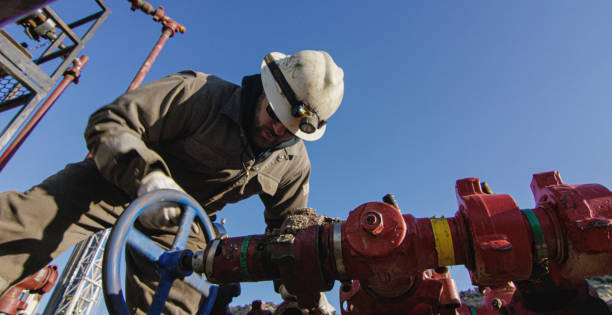Oil field work is a demanding and often dangerous job. It can involve long hours along with high risk work in potentially hazardous or even hostile environments. Unfortunately, these same challenges can lead workers to develop unhealthy coping mechanisms like addiction.
Oil field workers are at a heightened risk of drug and alcohol abuse, developing substance use disorders, and relapse. The stressful environment can impact workers’ mental health and lead to harmful behaviors like addiction and other self-destructive habits.
A 2018 study published in the Journal of Health Psychology showed that oil field workers were more likely to have alcohol use disorder than the general population. This increased risk is believed to stem from factors such as long hours, potential health hazards, and lack of access to social or supportive networks. Stress can accumulate quickly in an isolated environment and oil workers may be unable to deal with these issues effectively. Instead, they may resort to self-medicating to escape the daily grind through drugs and alcohol.
Moreover, oil field work is also associated with other compulsive behaviors, such as gambling or overeating. This can further compound the problem as individual’s spiral deeper into unhealthy patterns.
Addiction takes a toll on not only the individual but also loved ones, co-workers, and the organization as a whole. It can lead to decreased mental and physical health, workplace accidents, and a decrease in productivity.
With this in mind, it’s important for oil field workers, as well as organizations, to address addiction and establish proper support systems. This could include providing employees with access to counseling or other mental health services, as well as establishing clear policies and procedures in regards to drug and alcohol abuse.
Companies should also have programs in place to educate and equip employees with the necessary resources to maintain physical and mental well-being. For instance, they could offer training on coping mechanisms and stress management techniques, provide access to recreational activities, and enforce safety regulations.
In addition, employers should be aware of potential signs of addiction, such as; mood swings, fatigue, decreased work performance, changes in social behavior, or increased risk taking. If warning signs are observed, they should take action by addressing the problem, providing support and helping the individual seek help.
Having open and honest conversations among co-workers and supervisors can help reduce the stigma surrounding addiction. Moreover, investing in resources, setting clear boundaries and providing a friendly and supportive atmosphere can further reduce strain on the workplace and promote healthy habits.
Oil field work is an arduous job that carries plenty of risks. While it’s important to ensure safety precautions are taken, it’s also important to look out for signs of addiction and provide support for those affected. Addiction is a difficult thing to overcome but with the right resources and support, oil field workers can be on their way to recovery.
